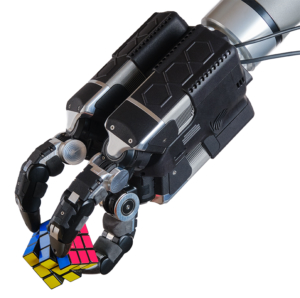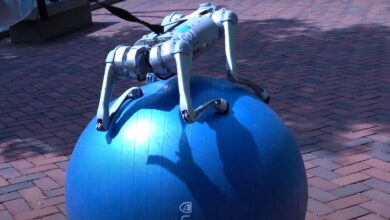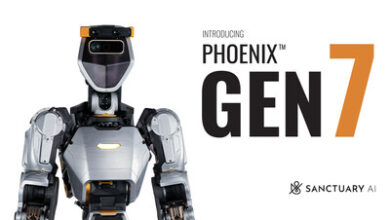DeepMind experimenting with ‘Shadow Hand’ that can withstand a severe beating in the name of AI research

A U.K. robotics startup has claimed its new robot hand designed for artificial intelligence (AI) research is the most dexterous and robust out there.
The Shadow Robot Company’s “Shadow Hand,” built in collaboration with Google’s DeepMind, can go from fully open to closed within 0.5 seconds and can perform a normal fingertip pinch with up to 10 newtons of force.
It’s primarily built for AI research, specifically “real-world” machine learning projects that focus on robotic dexterity. These projects may include TK EXAMPLE (OpenAI is using a Shadow Hand device for dexterity training, teaching it to manipulate objects in its hand). However, the Shadow Hand’s durability is its key selling point, with the device able to endure extreme punishment, such as aggressive force and impacts.
“One of the goals with this has been to make something that is reliable enough to do long experiments,” Rich Walker, one of Shadow Robot’s directors, said May 30 in a blog post. “If you’re doing a training run on a giant machine learning system and that run costs $10 million, stopping halfway through because a $10k component has failed isn’t ideal.
“Initially we said that we could try and improve the robustness of our current hardware. Or, we can go back to the drawing board and figure out what would make it possible to do the learning you need. What’s an enabling approach here?”
Related: Robot hand exceptionally ‘human-like’ thanks to new 3D printing technique
What exactly makes the Shadow Hand so robust isn’t entirely clear: the company website states only that it is “resistant against repeated impacts from its environment and aggressive use from an untrained policy,” which does little to explain the methods and materials used. But in his blog post, Walker suggested trial and error was the key to the sturdiness of the robotic hand.

“We spent a huge amount of time and effort testing the various components, iterating the design, trying various things,” Walker explained.”It was a very integrated project in terms of collaboration and iterative development. The end result is something quite special. It’s not a traditional robot by any means.”
The Shadow Robot Company previously demonstrated an earlier robot hand at Amazon re: MARS. Shadow Hand, however, is its latest model. It has been built with precise torque control and each of its fingers is driven by motors at their base and connected via artificial tendons.
Each finger is a self-contained unit — with sensors and stereo cameras simulating a sense of touch. The segments that make up the fingers are fitted with tactile sensors, and a stereo camera setup provides high-resolution, wide-dynamic-range feedback. The cameras are specifically pointed towards the inside of the surface of the silicon-covered fingertips so that they can capture the moment it touches something — and convert this visual data into other types of data.
Should any of the appendages endure significant damage, they can simply be removed from the base model and replaced. The sensors can also be replaced if need be, with the internal network able to identify when a sensor has been removed and a new one added.



